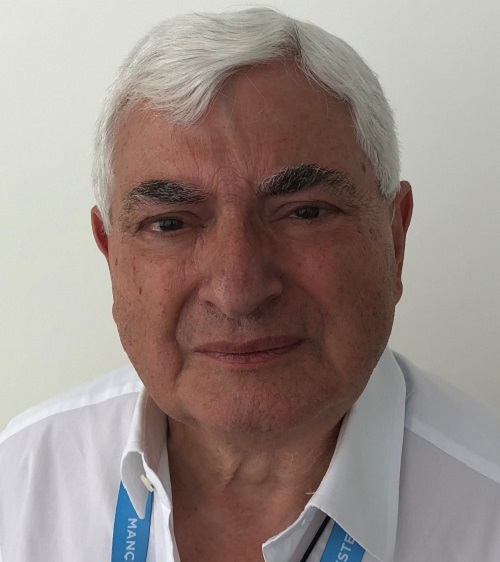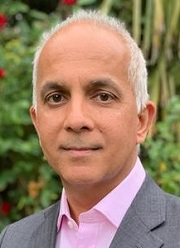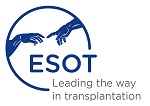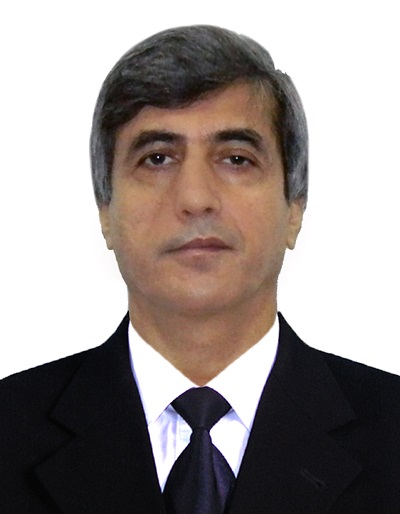Two distinguished members join Dendrite’s Scientific Advisory Board
Two distinguished members join Dendrite’s Scientific Advisory Board
Dendrite Clinical Systems has announced the appointment of two members to the company’s newly established Scientific Advisory Board - Sir Bruce Keogh (KBE FMedSci FRCS FRCP) and Professor Anthony Goldstone (CBE MA (Oxon) FRCP FRCPE FRCPath). The Scientific Advisory Board has been created to provide unique advice and guidance to Dendrite’s management team by taking an objective look at our activities and sharing with us their experience and knowledge. This includes evaluating the scientific merit of projects, assessing progress and offering strategic input on the company’s priorities.
“We are delighted to welcome two illustrious members to our new Scientific Advisory Board, both of whom have unparallelled experience in the international healthcare sector,” said Dr Peter Walton, Dendrite’s managing Director. “Their expertise and knowledge will provide us with valuable insights into how we can enhance and improve our expanding software portfolio, as well as increase awareness of our company globally.”
Sir Bruce has had a distinguished international career as a cardiac surgeon. He developed a longstanding interest in clinical outcomes from working closely with Dendrite to establish a national database for adult cardiac surgery early in his surgical career.

He subsequently became chair of Cardiac Surgery at University College London and Director of Surgery at the Heart Hospital, before being appointed Medical Director of the National Health Service and Director General in the Department of Health (DoH), a role that later transferred to NHS England. During this period (2007-18) as the most senior doctor in the NHS he was had particular responsibility for the development and implementation clinical policy and strategy across the health service in England.
In the DoH, he was the Government sponsor for NICE, the Healthcare Commission and the National Patient Safety Agency. He has served on several boards including NHS England. He is currently Chair of the Birmingham Women’s and Children’s NHS Foundation Trust, he was knighted for Services to Medicine in 2003.
Professor Goldstone is a senior haematology specialist with over 35 years’ experience of working in the NHS. He was appointed as a Consultant at University College Hospital (UCH) in 1976 and initiated the first stages of what became the biggest Adult Haematology unit in the UK. Professor Goldstone is a former Medical Director of University College London Hospital, former President of the British Society of Haematology and former Chair of the European Society for Blood and Marrow Transplantation Lymphoma Group.

He specialises in adult haematology and haematological malignancy, adult leukaemia, lymphoma (Hodgkin's and Non-Hodgkin's Lymphoma) and myeloma and other non-malignant haematological conditions. The founder of the stem cell transplant unit at UCH, Professor Goldstone is a renowned pioneer in haematological stem cell transplantation. A Principal Investigator on many leukaemia trials in the UK and internationally, he is strong advocate of evidence-based medicine and believes registries now stand alongside randomised clinical trials as real-world evidence.
Professor Goldstone, a former Director of the North London Cancer Network, has published over 360 peer-reviewed papers in haematology and has authored three books. He was awarded a CBE June 2008 for Services to Medicine.
 Dendrite Clinical Systems and the Society for Cardiothoracic Surgery in the UK are pleased to announce the SCTS Conference News 2022 newspaper is now available to view/download. The newspaper reports a multitude of presentations from the meeting including the latest and the best information on new technologies and techniques in cardio-thoracic surgery.
Dendrite Clinical Systems and the Society for Cardiothoracic Surgery in the UK are pleased to announce the SCTS Conference News 2022 newspaper is now available to view/download. The newspaper reports a multitude of presentations from the meeting including the latest and the best information on new technologies and techniques in cardio-thoracic surgery. Researchers led by the Clinical Research Unit at the Special Unit for Biomedical Research and Education (SUBRE), Aristotle University of Thessaloniki School of Medicine, Greece, have initiated a randomised control trial (RCT) that will compare minimally invasive extracorporeal circulation (MiECC) with conventional cardiopulmonary bypass (cCPB).
Researchers led by the Clinical Research Unit at the Special Unit for Biomedical Research and Education (SUBRE), Aristotle University of Thessaloniki School of Medicine, Greece, have initiated a randomised control trial (RCT) that will compare minimally invasive extracorporeal circulation (MiECC) with conventional cardiopulmonary bypass (cCPB). Dendrite Clinical Systems, working in close cooperation with the SCTS and several cardiac centres, has developed a series of ‘Dashboards’ that allow users to access to their unit’s surgical outcomes and compare them to national results in real-time. By uploading their data to the central Dendrite National Cardiac Surgical Registry, individual units or centres can instantly benchmark their results via an on-line database for internal consumption to assist units with their own clinical governance and for auditing purposes.
Dendrite Clinical Systems, working in close cooperation with the SCTS and several cardiac centres, has developed a series of ‘Dashboards’ that allow users to access to their unit’s surgical outcomes and compare them to national results in real-time. By uploading their data to the central Dendrite National Cardiac Surgical Registry, individual units or centres can instantly benchmark their results via an on-line database for internal consumption to assist units with their own clinical governance and for auditing purposes. Dendrite Clinical Systems is delighted to announce the first ever report from New Zealand’s Te Rēhita Mate Ūtaetae - Breast Cancer Foundation National Register. The ground-breaking report, titled, “30,000 voices: Informing a better future for breast cancer in New Zealand,” covers 30,000 patients diagnosed from 2003 to 2019.
Dendrite Clinical Systems is delighted to announce the first ever report from New Zealand’s Te Rēhita Mate Ūtaetae - Breast Cancer Foundation National Register. The ground-breaking report, titled, “30,000 voices: Informing a better future for breast cancer in New Zealand,” covers 30,000 patients diagnosed from 2003 to 2019. The European Society for Organ Transplantation (ESOT) has signed an agreement to develop a series of web-based registries on organ
The European Society for Organ Transplantation (ESOT) has signed an agreement to develop a series of web-based registries on organ 




